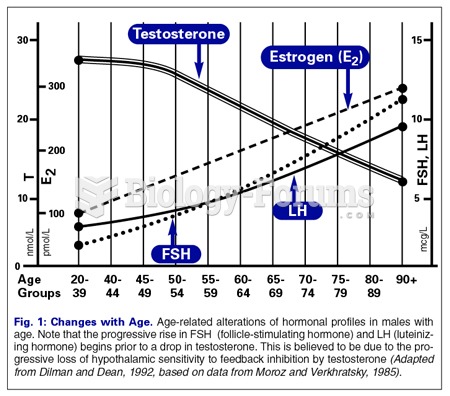|
|
|
Drugs are in development that may cure asthma and hay fever once and for all. They target leukotrienes, which are known to cause tightening of the air passages in the lungs and increase mucus productions in nasal passages.
About 3.2 billion people, nearly half the world population, are at risk for malaria. In 2015, there are about 214 million malaria cases and an estimated 438,000 malaria deaths.
On average, the stomach produces 2 L of hydrochloric acid per day.
It is widely believed that giving a daily oral dose of aspirin to heart attack patients improves their chances of survival because the aspirin blocks the formation of new blood clots.
As many as 28% of hospitalized patients requiring mechanical ventilators to help them breathe (for more than 48 hours) will develop ventilator-associated pneumonia. Current therapy involves intravenous antibiotics, but new antibiotics that can be inhaled (and more directly treat the infection) are being developed.
 (a) Male competition can be fierce. (b) This male baboon has bite wounds suffered in competition wit
(a) Male competition can be fierce. (b) This male baboon has bite wounds suffered in competition wit
 Bonobo females form close alliances, maintained through sex, but these alliances are lacking in chim
Bonobo females form close alliances, maintained through sex, but these alliances are lacking in chim





